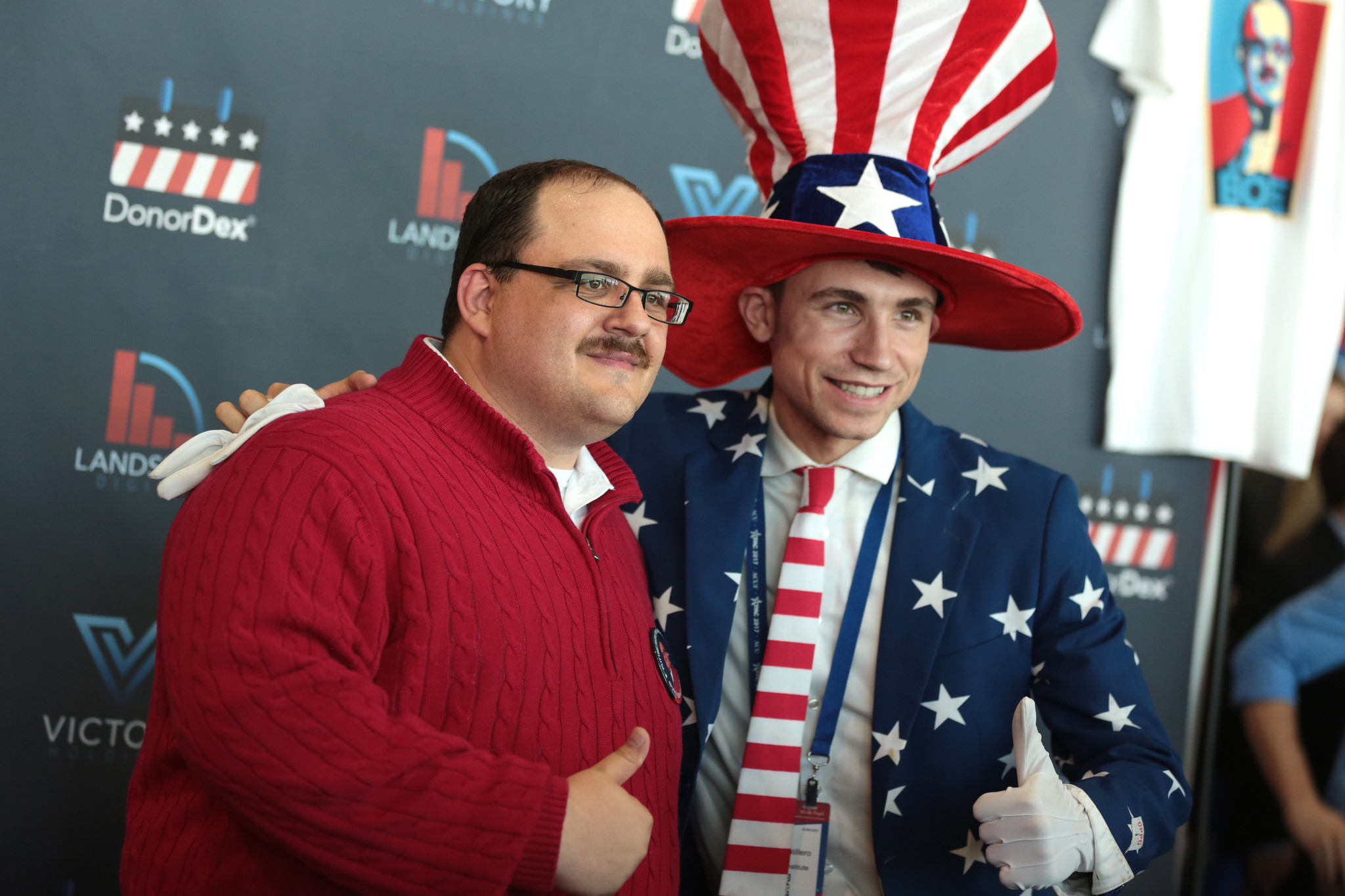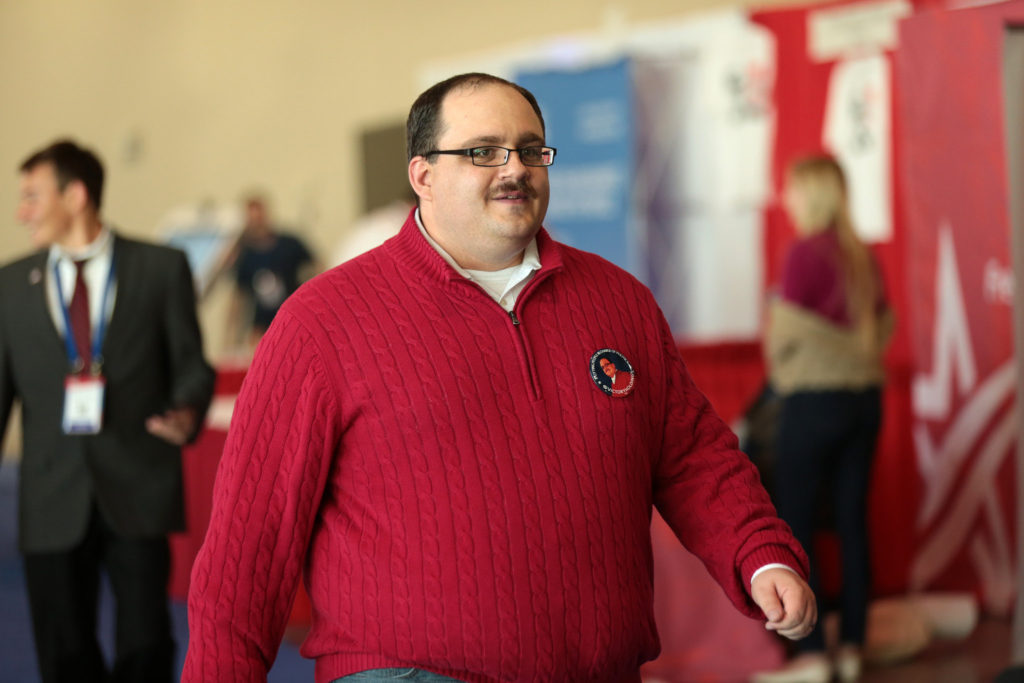The Keaton Jones & Ken Bone Controversies: The Darker Side of Viral Darlings

11-year-old Tennessee native Keaton Jones has made waves across the internet after speaking out against bullying on camera. Jones’s heartbreaking video shows the young boy crying and in disbelief as to, “why people bully others for being different from them,” and he addresses the viewer by saying that “it’s okay to be different.” After getting picked up by his mother from school, Keaton asked her to turn on the camera to deliver this powerful message.
This powerful video immediately went viral, with celebrities such as Ultimate Fighting Championship President Dana White, actors Chris Evans and Mark Ruffalo, and pop singer Hailee Steinfeld, just to name a few, reaching out to him to offer their support. They offered to fly him down to various premieres and sporting events and assured him that he has a friend in them. In addition to this, a GoFundMe donation box was set up by a third party in Keaton’s name, where over $50,000 was raised which was to be given to his mother.

As is the case with most things on the internet, people began to look into Keaton Jones and his family, digging into their social media and personal history. Keaton’s story took a controversial turn as people found a picture of his mother posing with the Confederate flag alongside her children, as well as Keaton’s father with tattoos reading “White Supremacist”. In addition, suspicions of Keaton being the instigator of the initial altercation at his school arose. It was alleged that he called a few African-American classmates the derogatory term used during the times of slavery; however, no video or written evidence of these allegations have surfaced.
Keaton’s viral video went from being praised to having mixed feelings. To make matters worse, kickboxer Joe Schilling offered to fly Keaton down to view a cage match, but Jones’ mother turned it down and asked him if they could have money instead. This sparked massive outrage over the internet as people began to label Keaton and his family as “racists” and “scams” for seeking monetary compensation for Keaton’s bullying. Many, particularly on the internet, feel it’s unfair that a child who cried about being bullied on camera would go on to earn over $50,000 USD when thousands of other kids are bullied every day without getting a dime. According to the National Center for Education Statistics, in 2015, about 21 percent of students ages 12–18 reported being bullied at school during the academic year. Of students ages 12–18, about 13 percent reported that they were made fun of, called names, or insulted, and 12 percent reported being the subject of rumors. Yet, these students do not obtain the recognition which Keaton was fortunate to receive. There may have even been a chance that those children’s cases of bullying may have been far more tumultuous than Keaton’s, yet the media have not raised much awareness for what is happening on a daily basis in local schools. However, since then, Keaton’s mother has claimed that her “family are not racists” and that she doesn’t want or need the money that was raised on the GoFundMe campaign.
This also brings up the issue of associating Keaton with the action of his parents. Although people may feel that Keaton’s parents were racist, there isn’t any proof of him doing anything that could be labelled as being racist. This incident should act as an example of how the actions of the parent are not indicative of the character of the child. It can be difficult to isolate Keaton’s anti-bullying message from his parents’ racist showboats (especially in the current political climate of the United States), but a universal message was conveyed through that video: bullying is wrong and discriminating others for being different is immoral.

Another viral incident akin to Keaton Jones would be the case of the ‘adorable’, red sweater-wearing Kenneth Bone. Bone became an overnight internet sensation, or meme, thanks to his television appearance on the 2nd Presidential Debate between then-candidates Hilary Clinton and Donald Trump. Bone, nervously, asked a question regarding the American presidential candidates’ plans on maintaining energy production in an environmentally-friendly manner while minimizing job loss to the fossil fuel industry. His courage to ask this question on live television and in front of two Presidential candidates, while wearing a very eye-catching bright red sweater, took the internet and news media by storm; with memes galore flooding social media and even an interview with Jimmy Kimmel. However, as his internet fame grew, he decided to post an Ask-Me-Anything (AMA) forum on Reddit – things then started to get ugly. According to the Washington Post, users immediately stalked Bone’s profile and dissected his comment history, which is visible on every Reddit user’s profile page, consisting of him posting in NSFW subreddits about his sex life after a vasectomy, his previous experience forging car insurance documents, and even posts justifying the killing of Trayvon Martin whilst maintaining the opinion that George Zimmerman was a “bad guy”. These revelations tarnished his image, Bone went from an “internet darling” to a “troll”.
These controversies showcase the true nature of the internet. In the post-internet information age, when an event occurs, people immediately research the entire background of those involved out of scepticism. It can be argued that this can spin what was intended to be an uplifting message into something far more sinister. The difference here compared to other cases of childhood bullying would be the presence of a viral video that brings awareness of such an event on a global scale. This was heightened by celebrities reacting to and endorsing it as well, which in turn made their thousands of followers cognizant of Keaton’s case. It also helps to have a video that is able to captivate the audience in a way as to rile up powerful emotions, especially that of sympathy, anger, and sadness.
This also brings into question the concept of internet privacy. It should not be an alien notion that what one posts on the internet stays there permanently. In this case, it backfired on Keaton’s mother as her entire argument against bullying and tactic to elicit a response from the emotions of the general public have been disassembled simply due to her previous posts on social media that a few sceptics uncovered. This should serve as a lesson to everyone that they should only post on social media what they wouldn’t mind seeing on the front page of a newspaper. Viral videos, when distributed through a massive and accessible platform such as YouTube, can garner greater attention when compared to the likes of television or the radio. The internet can be a wonderful place but also a sombre one, due to the fact that privacy is a luxury. Incidents like these show that there cannot being a single event that receives all positive reactions. Perhaps this is what makes the hub that connects people all over the world so unpredictable and indefinite. In the end, stories like these spotlight the internet’s ability to self-correct our own faith in humanity.
Edited by Sarie Khalid
